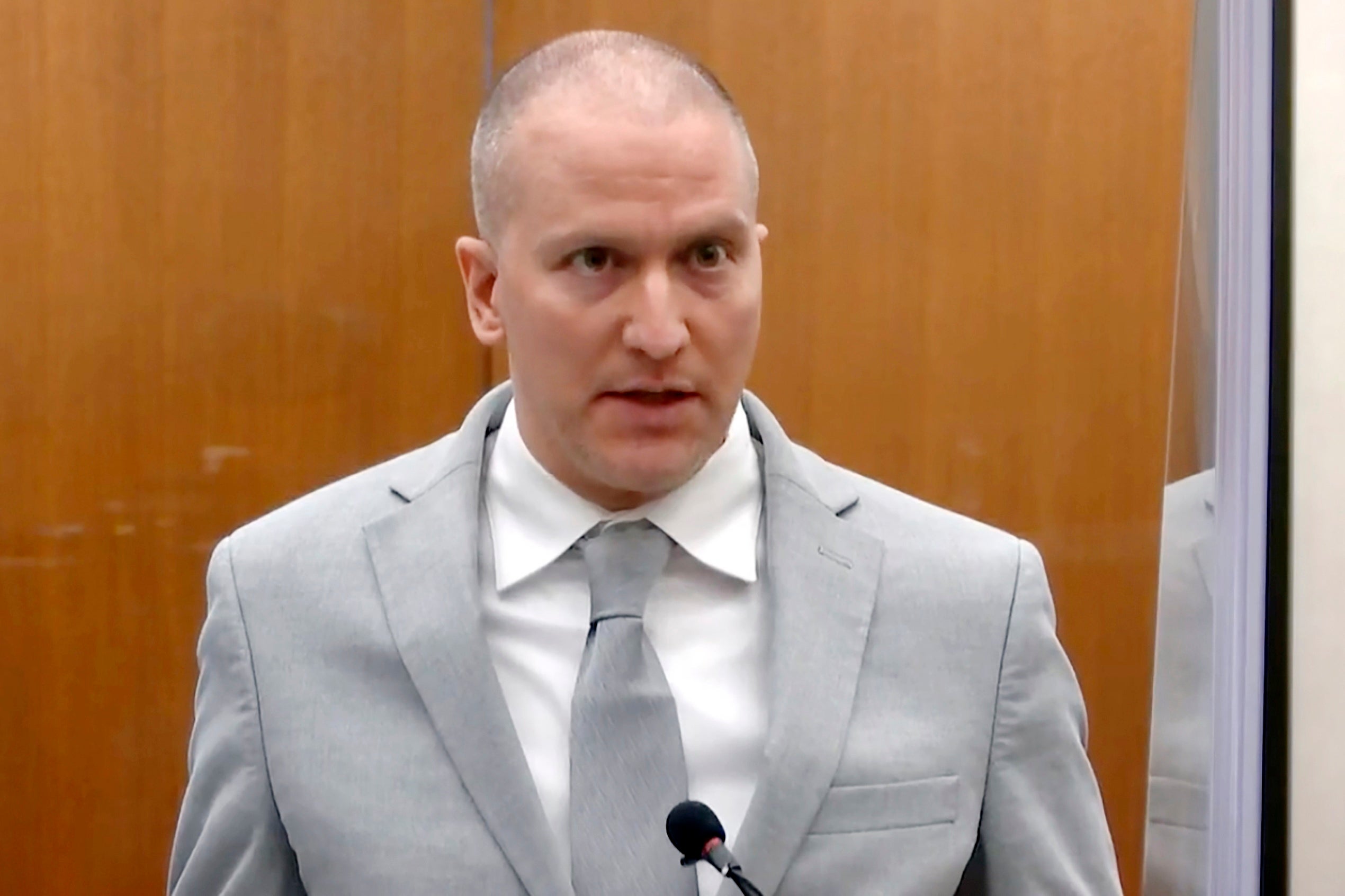Prosecutors decry stabbing of ex-officer Derek Chauvin while incarcerated in George Floyd's killing
Minnesota state prosecutors say former Minneapolis police Officer Derek Chauvin is expected to survive serious injury after being stabbed by another inmate at a federal prison in Arizona where he's serving time for the murder of George Floyd

Derek Chauvin, the former Minneapolis police officer convicted of murdering George Floyd, is expected to survive serious injury after being stabbed by another inmate at a federal prison in Arizona, the Minnesota attorney general's office said Saturday while denouncing the attack.
The stabbing took place Friday at the Federal Correctional Institution, Tucson, a medium-security prison that has been plagued by security lapses and staffing shortages. It was confirmed by a person familiar with the matter who was not authorized to publicly discuss the attack and spoke to the Associated Press on the condition of anonymity.
“We have heard that he is expected to survive,” Brian Evans, spokesperson for the Minnesota attorney general’s office, told The Associated Press about Chauvin.
The U.S. Bureau of Prisons has confirmed an assault at the facility and said employees performed “life-saving measures” before the inmate was taken to a hospital for further treatment and evaluation. The Bureau of Prisons did not name the victim or provide a medical status “for privacy and safety reasons.”
Prosecutors who successfully pursued a second-degree murder conviction against Chauvin at a jury trial in 2021 expressed dismay that he became the target of violence while in federal custody.
"I am sad to hear that Derek Chauvin was the target of violence. He was duly convicted of his crimes and, like any incarcerated individual, he should be able to serve his sentence without fear of retaliation or violence,” Minnesota Attorney General Keith Ellison said in a statement.
The Bureau of Prisons said no employees at the Tucson facility were injured in the attack and that the FBI was notified. The facility has about 380 inmates.
Terrence Floyd, George Floyd’s brother, told The Associated Press on Saturday that he wouldn’t wish what happened to Chauvin on anyone, and that he felt numb when he initially learned of the news.
“I’m not gonna give my energy towards anything that happens within those four walls — because my energy went towards getting him in those four walls,” Terrence Floyd said. “Whatever happens in those four walls, I don’t really have any feelings about it.”
Chauvin’s stabbing is the second high-profile attack on a federal prisoner in the last five months. In July, disgraced sports doctor Larry Nassar was stabbed by a fellow inmate at a federal penitentiary in Florida.
Chauvin, 47, was sent to FCI Tucson from a maximum-security Minnesota state prison in August 2022 to simultaneously serve a 21-year federal sentence for violating Floyd’s civil rights and a 22½-year state sentence for second-degree murder.
Chauvin’s lawyer, Eric Nelson, had advocated for keeping him out of the general population and away from other inmates, anticipating he’d be a target. In Minnesota, Chauvin was mainly kept in solitary confinement “largely for his own protection,” Nelson wrote in court papers last year.
Last week, the U.S. Supreme Court rejected Chauvin’s appeal of his murder conviction. Separately, Chauvin is making a longshot bid to overturn his federal guilty plea, claiming new evidence shows he didn’t cause Floyd’s death.
Floyd, who was Black, died on May 25, 2020, after Chauvin, who is white, pressed a knee on his neck for 9½ minutes on the street outside a convenience store where Floyd was suspected of trying to pass a counterfeit $20 bill.
Bystander video captured Floyd’s fading cries of “I can’t breathe.” His death touched off protests worldwide, some of which turned violent, and forced a national reckoning with police brutality and racism.
Three other former officers who were at the scene received lesser state and federal sentences for their roles in Floyd’s death.
Chauvin’s stabbing comes as the federal Bureau of Prisons has faced increased scrutiny in recent years following wealthy financier Jeffrey Epstein’s jail suicide in 2019. It's another example of the agency’s inability to keep even its highest profile prisoners safe after Nassar’s stabbing and “Unabomber” Ted Kaczynski’s suicide at a federal medical center in June.
At the federal prison in Tucson in November 2022, an inmate at the facility’s low-security prison camp pulled out a gun and attempted to shoot a visitor in the head. The weapon, which the inmate shouldn’t have had, misfired and no one was hurt.
An ongoing AP investigation has uncovered deep, previously unreported flaws within the Bureau of Prisons, the Justice Department’s largest law enforcement agency with more than 30,000 employees, 158,000 inmates and an annual budget of about $8 billion.
AP reporting has revealed rampant sexual abuse and other criminal conduct by staff, dozens of escapes, chronic violence, deaths and severe staffing shortages that have hampered responses to emergencies, including inmate assaults and suicides.
Bureau of Prisons Director Colette Peters was brought in last year to reform the crisis-plagued agency. She vowed to change archaic hiring practices and bring new transparency, while emphasizing that the agency's mission is “to make good neighbors, not good inmates."
Testifying before the Senate Judiciary Committee in September, Peters touted steps she'd taken to overhaul problematic prisons and beef up internal affairs investigations. This month, she told a House Judiciary subcommittee that hiring had improved and that new hires were outpacing retirements and other departures.
But Peters has also irritated lawmakers who said she reneged on her promise to be candid and open with them. In September, senators scolded her for forcing them to wait more than a year for answers to written questions and for claiming that she couldn’t answer basic questions about agency operations, like how many correctional officers are on staff.
___
Associated Press writers Amy Forliti in Minneapolis and Michael Balsamo in New York contributed to this report.
Bookmark popover
Removed from bookmarks